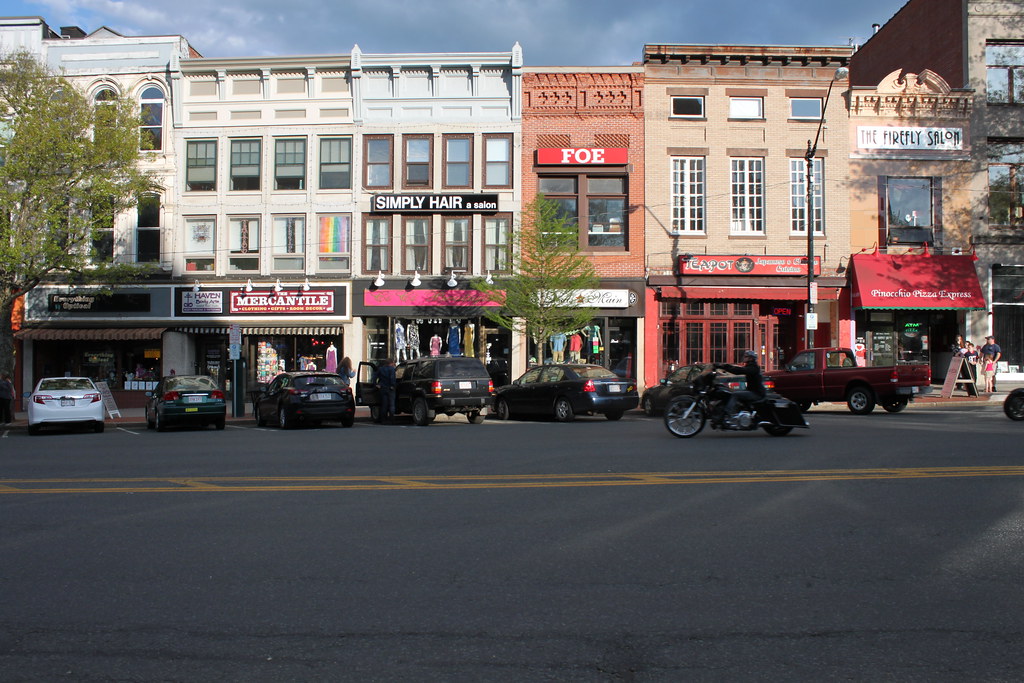This past Thursday Oct. 26, Edwards Church in Northampton hosted a captivating conversation between two poets, Sally Wen Mao and Ocean Vuong. The discussion encompassed a wide range of themes from upbringing, the relationship between life and writing and how words can heal the wounds of the past.
Vuong said that Mao’s poems reflect “the way she moves in the world like a river, collecting moments as if they were debris.” It was apparent they were as excited to have this conversation with each other as the aspiring poets in the audience were to hear it. The conversation felt like two lifelong friends catching up after a long time apart.
As the night began, Mao read a selection from her new poetry collection titled “The Kingdom of Surfaces.” Vuong inquired about the significance of the collection’s first poem, one written by her grandmother and published in its original Chinese. Mao’s response was both moving and revealing. She spoke of her admiration for her grandmother, who, despite her age, displayed an uncanny ability to adapt to modern culture, even dancing to Missy Elliott, immortalized in a December 2019 video. Mao’s grandmother, unaware of her viral dance video, began writing poems during the COVID-19 pandemic and started sharing them with her granddaughter via WeChat. This touching connection between generations and cultural adaptation became a central theme in Mao’s book.
Vuong praised Mao for her willingness to “dare,” a quality he believes is essential for any writer. He reflected on their shared experiences, such as Mao teaching him to dance to Drake, which he described as a moment of daring and self-expression. Vuong noted that Mao’s work was distinctive and had the ability to shape words into a profound narrative, like porcelain. He was particularly impressed by Mao’s ability to engage with phenomena without judgment, creating a genuine and unfiltered connection with the reader.
When asked about her writing process, Mao humorously compared herself to a racoon, collecting and fixating on things that capture her attention. Her roles as both collector and writer are a means of delving deep into her creative process.
Vuong highlighted the importance of literature that serves the purpose of healing, openly challenging the reductive perspective that associates healing with femininity. The conversation took an interesting turn when Ocean and Sally discussed the gendered nature of certain metaphors in poetry. They expressed interest in reinterpreting gendered expressions, particularly that originated from Mao’s Chinese culture. She questioned whether traditionally misogynistic tropes, such as the “toppling of a castle,” could be reimagined as a force for positive change. They noted that the less function something has, the more valuable it is.
Vuong reflected on the nature of being born into a world that has already seen so much history, emphasizing, “to be born right now means you arrive late.”
He continued: “History works like sedimentary rock, but only one layer has humans at a time. Another generation gets a chance later. Similarly, language is living, breathing material. It is not dead, it is always alive. The meaning of a word is its use. If you don’t agree with a function you can use it differently.”
Vuong and Mao also posed questions of the imperial purposes of language. For example, in America, standard English is the language of the militaristic diplomacy, bureaucratic forms and procedures and analytical essays in schools. If every American is raised to be fluent in the language of American imperialism, are you then toppling a castle when you experiment with vernacular, or change the functionality of a word? It appears Vuong and Mao both understood this to be at least a form of resistance, a way to take agency in telling of their lives and their cultures.
Eli Howe can be reached at [email protected].
Kaviya Raja can be reached at [email protected].



















